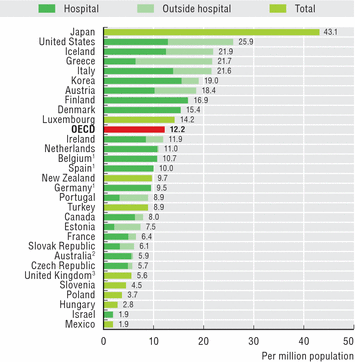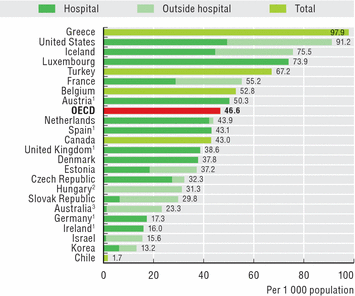Health and health care aren't the same thing. That is something that economists/public health people say over and over but doctors don't like to hear. After all, doctors pride themselves on helping patients but the truth is that their patient's health depends a lot more on the patient's choices of diet, exercise, even spirituality, than on whether their doctor does a good job or not.
So when you're talking about health care its important not to get obsessed with comparing the health of the population and assuming that the differences are a byproduct of differences in health care. For instance, blacks have worse health than whites in the US in general but they also have less education, are discriminated against, and are more likely to have a terrible diet (and probably to smoke). I don't think much of the black-white gap in health has to do with how often they see an M.D. and how good the care is.
Anyway, that said, the statistic most people like to cite on how American health care is terrible relative to in Europe is that white people in the US have 5.2ish infant deaths per 1000 births and European countries range from 3.0 to 5.2ish. So the US is one of the worst if not the worst on the most critical thing medicine does. (Medicine has only really reduced mortality two ways in the past 50 years, treating heart disease at the end of life and reducing child mortality at the beginning of life. The rest of the gain in life expectancy are from better nutrition, vaccines, antibiotics, clean water, and not smoking.)



